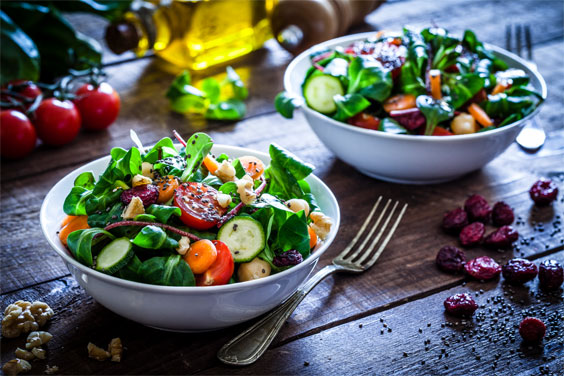
Gas formation and bloating are common scenarios with many of us, especially with those above 30. It can be caused due to overeating, stress, or many other causes and continues to be discomfort throughout the duration. We consume store-bought antacids and gas relieving tablets which provide temporary relief. The Ayurvedic treatment for gas involves a deeper understanding of your body and concentrating on the underlying cause. Read along to know about the 5 Ayurvedic Remedies for Gas and Bloating.
Bloating is the sensation of your belly being too bloated or stretched. Cramps, burping, diarrhea, constipation, edema, and a lot of gas are all possible.
It occurs when your digestive system's organs are strained, such as when fluids, gas, or particles accumulate in a section of your stomach. It can also happen if your stomach contents move too slowly through your digestive system, if you have weak muscles in your tummy wall, or if your diaphragm muscle tightens instead of relaxing.
Eating a lot of salty foods and carbs, as well as swallowing air when you eat too quickly or drink a lot of fizzy beverages, can make you feel bloated.
Bloating on a regular basis can be caused by a variety of issues, including:
gaining weight
Constipation
stress
coeliac disease
Gluten, wheat, or milk sensitivity is a kind of food intolerance (lactose intolerance)
IBS (irritable bowel syndrome) (IBS)
hormones, such as before menstruation or during menopause
some medicines that arent compatible
It should come as no surprise that gas and bloating are among the most prevalent digestive ailments handled by Ayurveda clinic Dubai. Gas and bloating, according to Ayurveda, are caused by an increase in Vata (the air and space element) in the GI tract and are often symptoms of poor or impaired digestion. Chronic gas and bloating can disrupt one's everyday life owing to the discomfort and embarrassment associated with it. Severe bloating can even make one appear overweight or pregnant when it is only a buildup of air in the gut.

There is no more effective therapy for gas and bloating than the Ayurvedic Basti or herbal enema. This is due to the fact that gas and bloating are associated with increased Vata dosha in the colon. The Ayurvedic enema is an Ayurvedic treatment for bloating that is used to deliver herbs and oils straight into the colon, expelling air, decreasing dryness, clearing obstructions, and lowering Vata in the GI tract.
Dashamula infusion is the ideal herb to use with the enema (Basti) for persistent gas and bloating. If dryness is also a concern in this situation, a warm sesame oil enema may be used in addition, with treatments alternating between the two. The length of the enema therapy will be determined by the person as well as the degree of the gas and bloating.

Because Vata will always play a part in the etiology of gas and bloating, it will be required to adhere to a fairly stringent Vata-soothing diet during the therapy process. Although there are several Ayurvedic remedies for gas and bloating, following Vata-balancing eating guidelines is crucial.
All uncooked, cold, dry, and abrasive meals should be avoided. Raw vegetables, cold juices and smoothies, salads, crackers, dry cereal or granola (particularly with cold milk), popcorn, dry toast, frozen meals, cold foods, and iced or cold beverages are all examples of this.
Consume mostly warm, well-cooked meals with plenty of warming spices (ginger, turmeric, cumin, cinnamon, and so on) and healthy oils.
Avoid processed, preserved, and refined foods (basmati rice, on the other hand!).
Nuts can be difficult to digest during periods of high Vata and should be consumed in moderation or avoided if necessary.

This may come as a surprise to some, but drinking excess liquids when eating meals dilutes the enzymes required for effective digestion. It will literally extinguish our fire and produce a soupy slug in the belly that likes to stay in the stomach for far too long. This can cause a variety of indigestion, and if you are already prone to gas and bloating, this will only add fuel to the fire.
So, what is the limit? If necessary, a few sips of (preferably warm) water can be consumed to aid digestion. The total amount of fluid consumed should be less than 1/2 cup before eating while eating, and up to two hours after eating.

A cup of tea may act as a natural remedy against bloating. However, addressing the underlying cause of stomach troubles is the best way. However, if immediate relief from minor stomach difficulties and transient bouts of pain is required, a warm cup of tea might rescue the day. This soothing tea may be made by brewing one or two of the herbs typically found in the kitchen inventory, as stated below. In rare situations, honey can also be added. Teas made with fennel, chamomile, and ginger can be used to relieve the stomach.

Ayurveda for Gastro-intestinal Diseases suggests that People suffering from an upset stomach, gas, acidity, heartburn, and other gastrointestinal issues can also find comfort by immediately taking powdered everyday substances from their kitchen inventory, such as fennel, carrom, caraway, coriander seeds, and so on. A few instances are shown below:
When experiencing heartburn or acidity, mixing equal amounts of green cardamom, fennel seeds, and unrefined sugar in a glass of cool milk may provide immediate relief.
Similarly, eliminating acidity can be accomplished by swallowing a fine powder including cumin seeds, coriander seeds, and sugar twice a day with water.
In conclusion, bloating is a condition that has a cure and requires your attention in order to do so. If you are looking for the best Ayurvedic Doctor in Dubai, visit Dr. Jasnas Clinic in Dubai for a holistic treatment for gas and bloating.